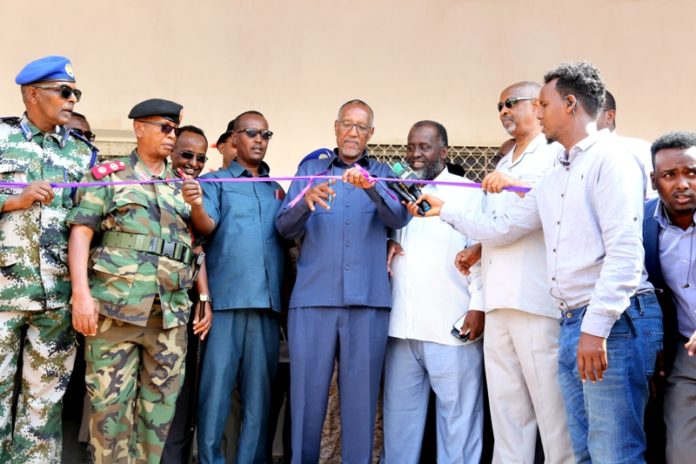President Musa Bihi Abdi of the Republic of Somaliland, Sunday, clarified misreports that had flooded both conventional and social media pages since yesterday purporting that Somaliland has reneged on the 2017 agreements with the United Arab Emirates on, especially, the construction of a military-cum-naval base at the Red Sea port of Berbera.
The misunderstanding – or intentional misinterpretation, in the case of some parties – was borne of an off-the-cuff, terse statement the President made at an occasion marking the foundation-laying of new projects to be implemented at the port city.
“The airport will return to civilian use. I believe it will be one of the largest in the Horn of Africa if not the whole of Africa,” he said at the time. He neither elaborated on the statement on his own nor did anybody else, including the press, ask him to, since neither the government itself nor the parliament had raised such a possibility in any form before that moment.
The President added that a company building the civilian terminal was going to arrive soon.
But, today, at a university graduation ceremony he was speaking at in Burao, the 2nd largest city in Somaliland, the President clarified matters.
“On my last visit to the UAE, we discussed with the relevant authorities how both civilian and military aircraft can share the ultra-modern, further-extended Berbera airport which the Emirates had rebuilt and refurbished. We will have to build a separate terminal for civilian passengers, of course, and that is what we plan to do,” he said.
“There is no change to the agreement we have entered with the UAE on the port management, and on the base. The agreement holds. We are grateful for how the UAE had rebuilt the airport and the on-going extensions and modernization on the port. They have done a splendid job,” he added.
President Bihi, warming up to the subject, delighted his audience by solemnly undertaking the alternative road connecting Hargeisa, Berbera, Burao through Odweine will be revitalized and completed in due time.
“My government is committed to finding an alternative route to the existing road connections. The roads will nor be able to accommodate heavy-duty transports and an increased number of motorists once port extension completes in two years’ time,” President Bihi explained.
“And, certainly,” he said, “cargo planes will need an airport. The existing facilities which the UAE has brought up to a state-of-the-art condition can even accommodate shuttle landings let alone jets of any kind, make or speed,” he said.
President Bihi reiterated that he was proud of how the Emirates turned around existing facilities at both the airport, first built by the Russians in 1975 and later extended by the US, and the seaport either of which can now confidently hold its own with any other international facility of the same nature – if not better.
The misinterpretation of the President’s words were inadvertently fueld by remarks from official sources, too. The Tweet below was from the Director of the Presidency, itself, Mohamed Ali Bile.
Since yesterday, Somalia elements and proponents of woe and failure for Somaliland sovereignty status had been recalling how Somalia was so much against the agreements the 28-year-old republic had entered with the United Arab Emirates in early 2017 and formally put into effect later in the same year. Many of them openly celebrated prophesying the end of Somaliland was in sight, and that Mogadishu, after all, had triumphed over Somaliland.
Burao made nought of all the ill-rumours and Somaliland so much more the stronger due to the president’s few well-placed clarifications and forecast of more infrastructural development projects for the area.
And, of course, friends of Somaliland pointed out the facts, coming to the rescue, more than flabbergasted Somalilanders, themselves.




